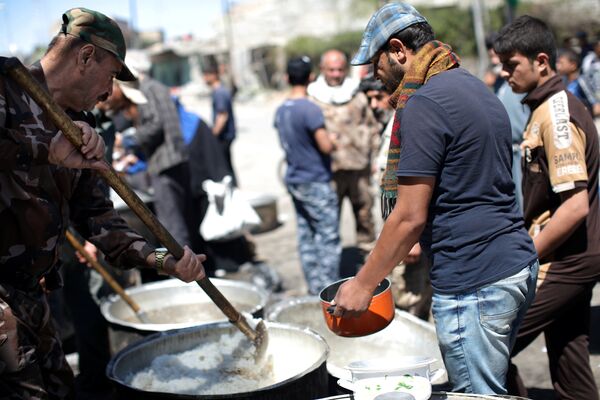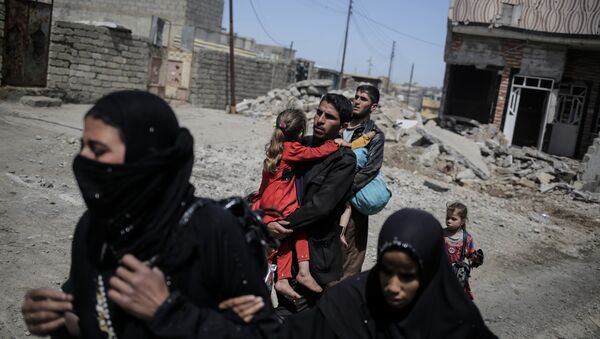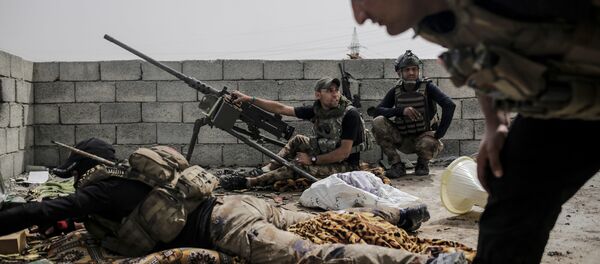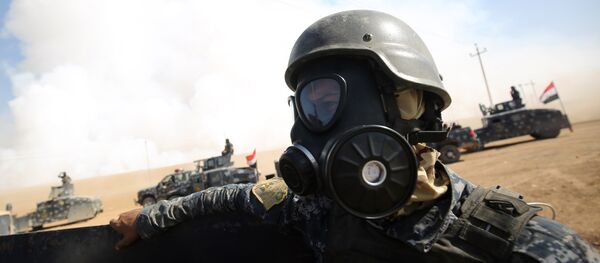The prices, she said, have forced many locals to give up their favorite drink, black tea. Many people in Mosul can now afford to eat not more than once a day, while many can only afford to eat "every other day."
Since the start of the operation to liberate the city from Daesh, on October 17, 2016, the militants have been using children and their parents as human shields. Due to the lack of food, she said, children are suffering the most, with many dying from starvation.

"When I was in the al-Jadaa refugee camp, I met a woman whose 11-month-old baby died because of dwindling milk when she was breastfeeding him, and there was no powdered baby milk to substitute it with," the lady told Sputnik.
When she lost her milk she attempted to leave Mosul and reach the Iraqi government army.
She was stopped by a militant who asked where she was going. When she answered that she has lost milk and there was no powdered baby milk, he turned her back into the city with the words: "Get back where you came from. You are no better than me, and I have lost two children."
In the mosques of the Tamuz district of western Mosul, every other day prayers are heard for a child who has died of hunger, the lady said.
She also told another story: when the hunger became unbearable, one of the residents took his family and went to one of the militants' abandoned headquarters. They thought that the government army would start bombing it and they would face a swift death, without any suffering. However, she said, God decided otherwise and the district was liberated the next day.
Most of the residents, she said, are eating wheat which they collect themselves. Even onions have become delicacy. There are extremely poor districts, such as al Rifai, where people are eating mostly dried bread, and Tamuz, where people are eating grass, which is also coming to an end, she concluded.




